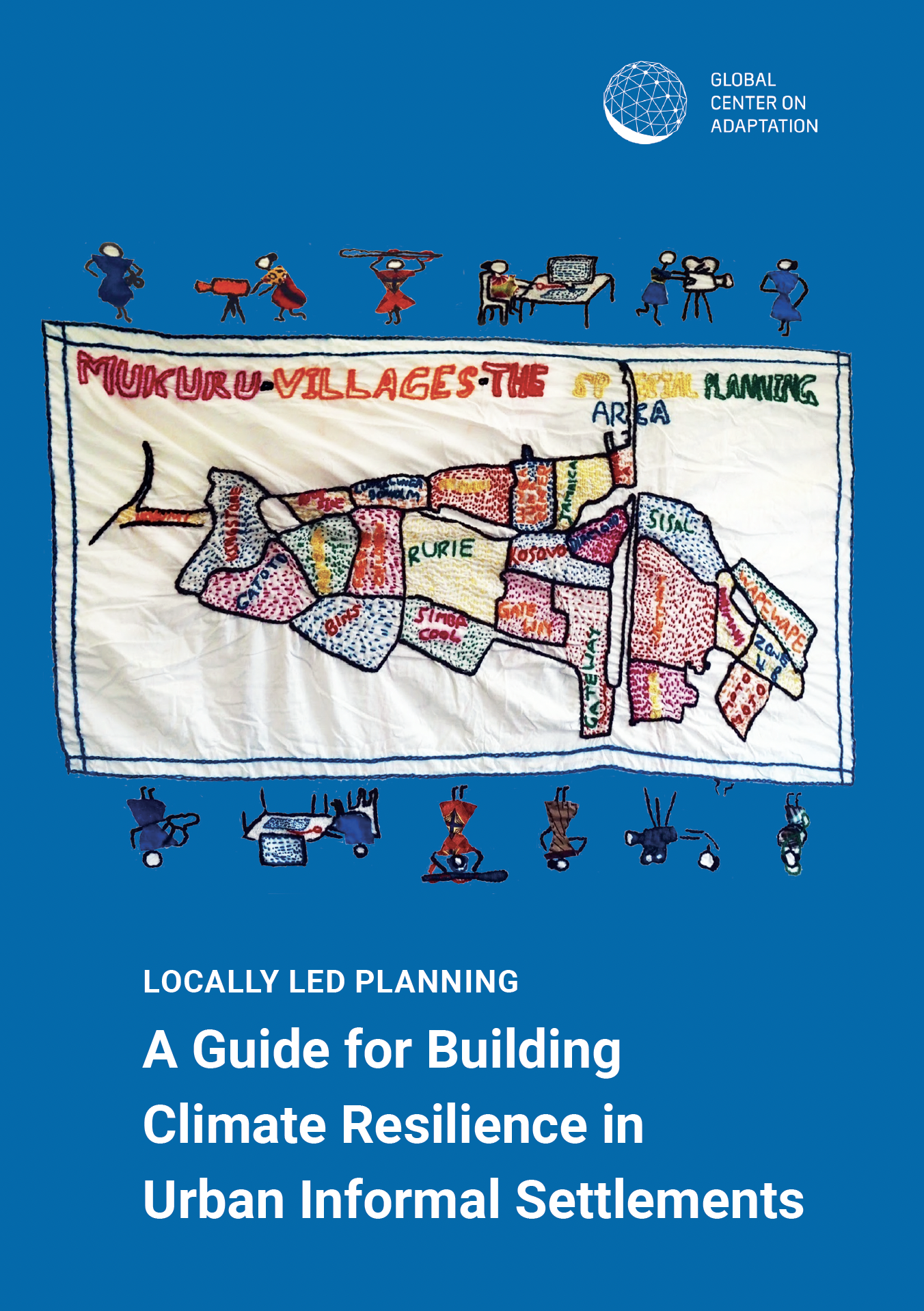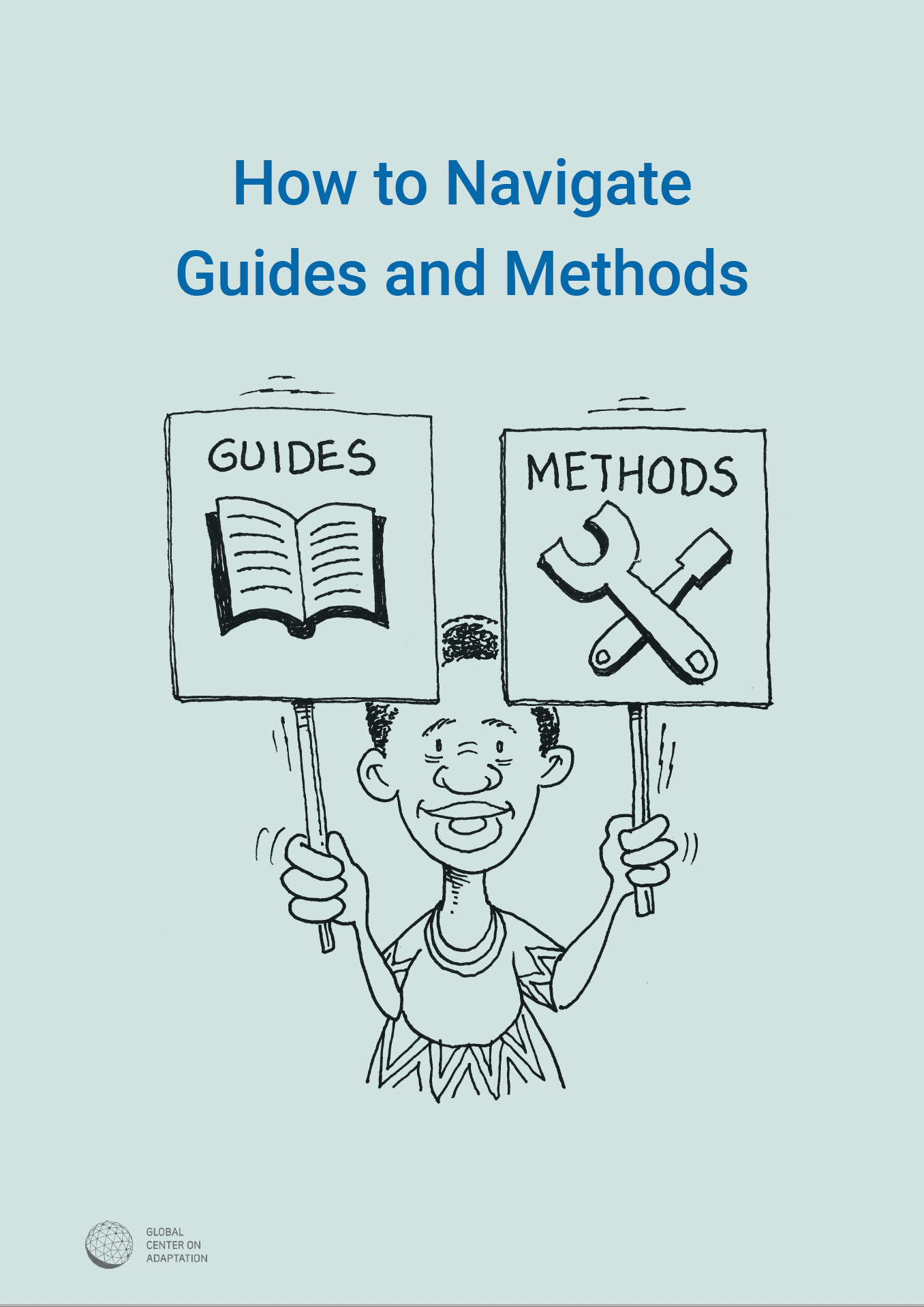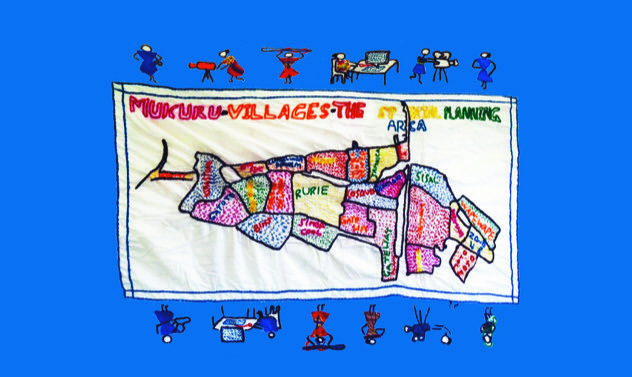
Introduction
Introduction
This Guide provides resources for locally-led, inclusive, multisectoral upgrading for climate resilience in urban informal settlements. It pays particular attention to context and its variation across cities and countries — the principles, guides and methods in this document must be translated to each unique context. It can help replicate the approaches and roles taken by institutions and people for comprehensive, transformative upgrading — based largely on the experience from the Mukuru Special Planning Area (SPA) in Nairobi, Kenya — but not the specific plans themselves. While the focus is on Africa, the lessons can be applied elsewhere as well.

The Mukuru Approach at a Glance
The Mukuru Approach at a Glance
The videos for this Guide were produced in collaboration with Know Your City TV, a creative collective of young men and women from informal settlements across the world: "So many images of development, poverty and informality are taken through the lens of the “other.” We say: nothing for us without us."
About this Guide
About this Guide

The Mukuru Approach
The Mukuru Approach
A high-level overview of Mukuru Special Planning Area
The Mukuru approach has taught us that improving climate resilience in informal settlements requires the urgent coordination of several key strategies. National and city leaders should take up this approach to building climate resilience and upgrading informal settlements.

Urbanization in the margins: Upgrading informal settlements for climate resilience
Urbanization in the margins: Upgrading informal settlements for climate resilience
Like informal settlements in cities across Africa, Mukuru is vulnerable to climate hazards like extreme rainfall, floods, water- and vector-borne diseases, extreme heat, fires, and water scarcity. Locally-led planning efforts serve as an important model for upgrading at scale to build climate resilience in informal settlements.
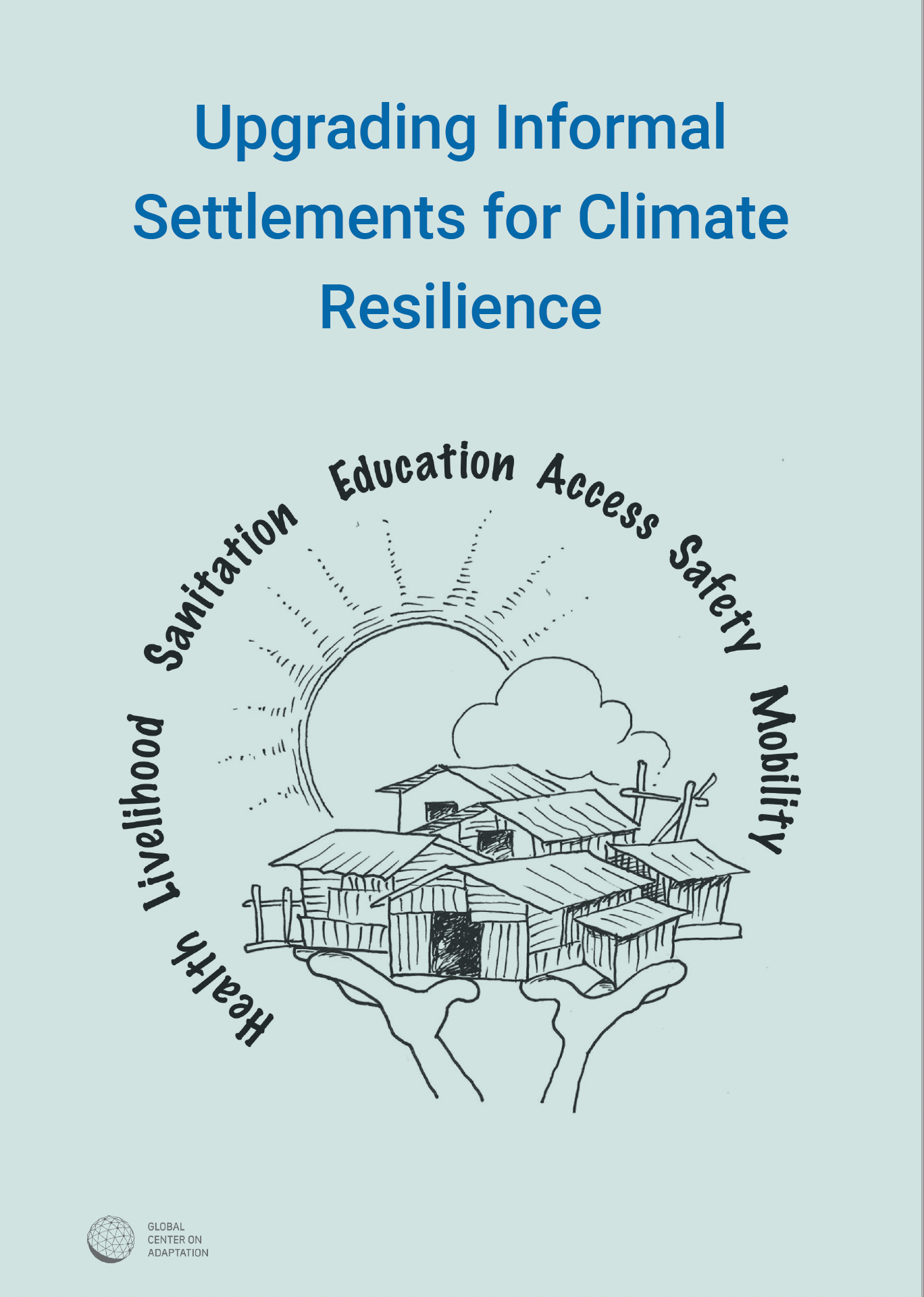
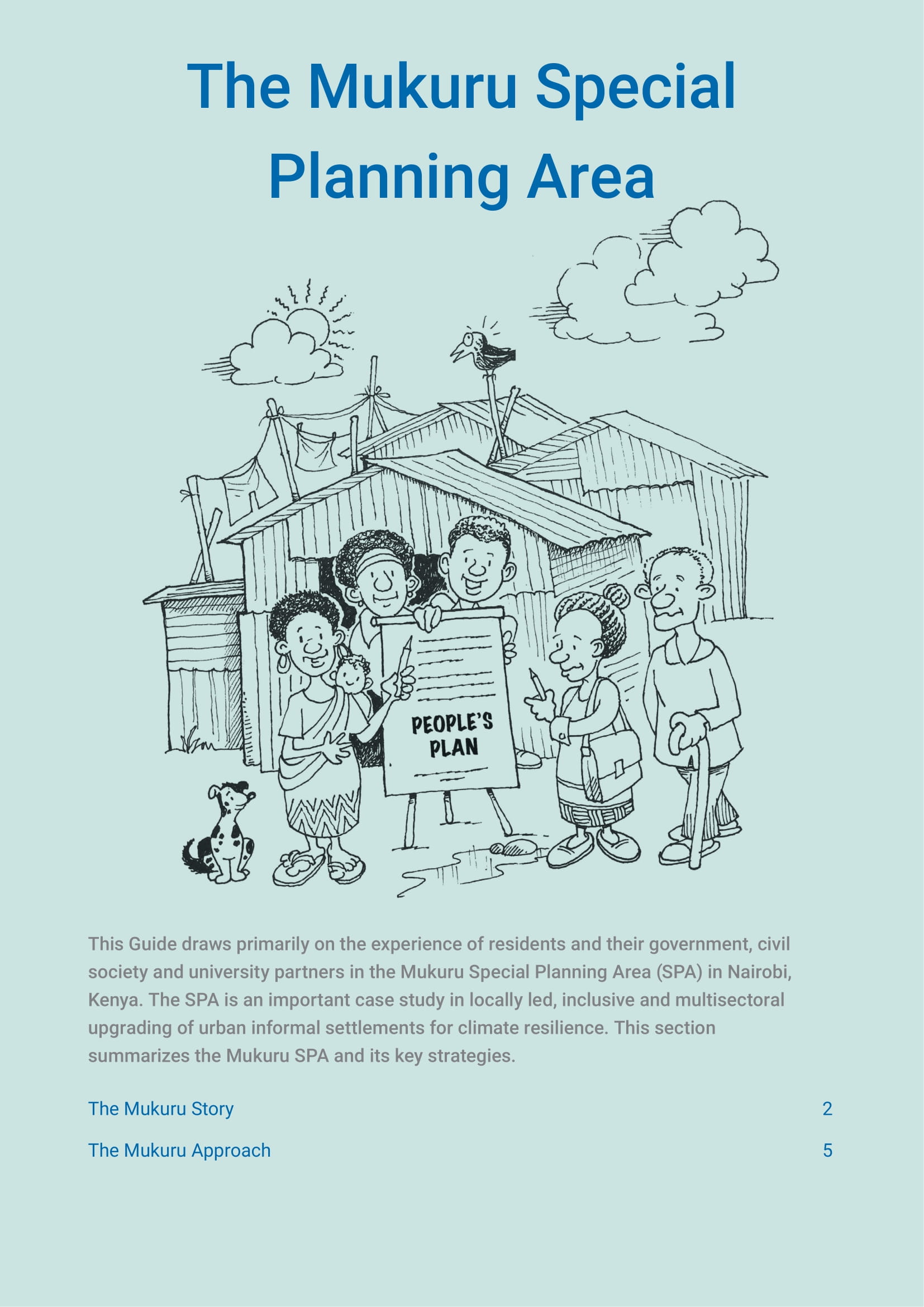

The Mukuru Story
The Mukuru Story
The story of Mukuru, as told by Jane Weru, Executive Director of the Akiba Mashinani Trust and one of its central champions and stewards, and Dorise Moseti, a community mobilization champion from Mukuru.
Guides and Methods
Guides and Methods
The following Guides and Methods provide in-depth discussions of key practices and methodologies as well as practical considerations for translating concepts to your context.

Guides discuss key practices that are highly sensitive to local context. Each guide, therefore, includes practical considerations for translating concepts to your context as well as relevant case studies.

Methods are detailed methodologies that can be more directly replicated across cities and countries and aid the undertaking of concepts discussed in Guides. They include examples of relevant materials like data collection tools.
Videos highlight key lessons from the Mukuru approach and strategies for undertaking locally-led upgrading for climate resilience.
Roles
Roles

Determining Roles
Determining Roles
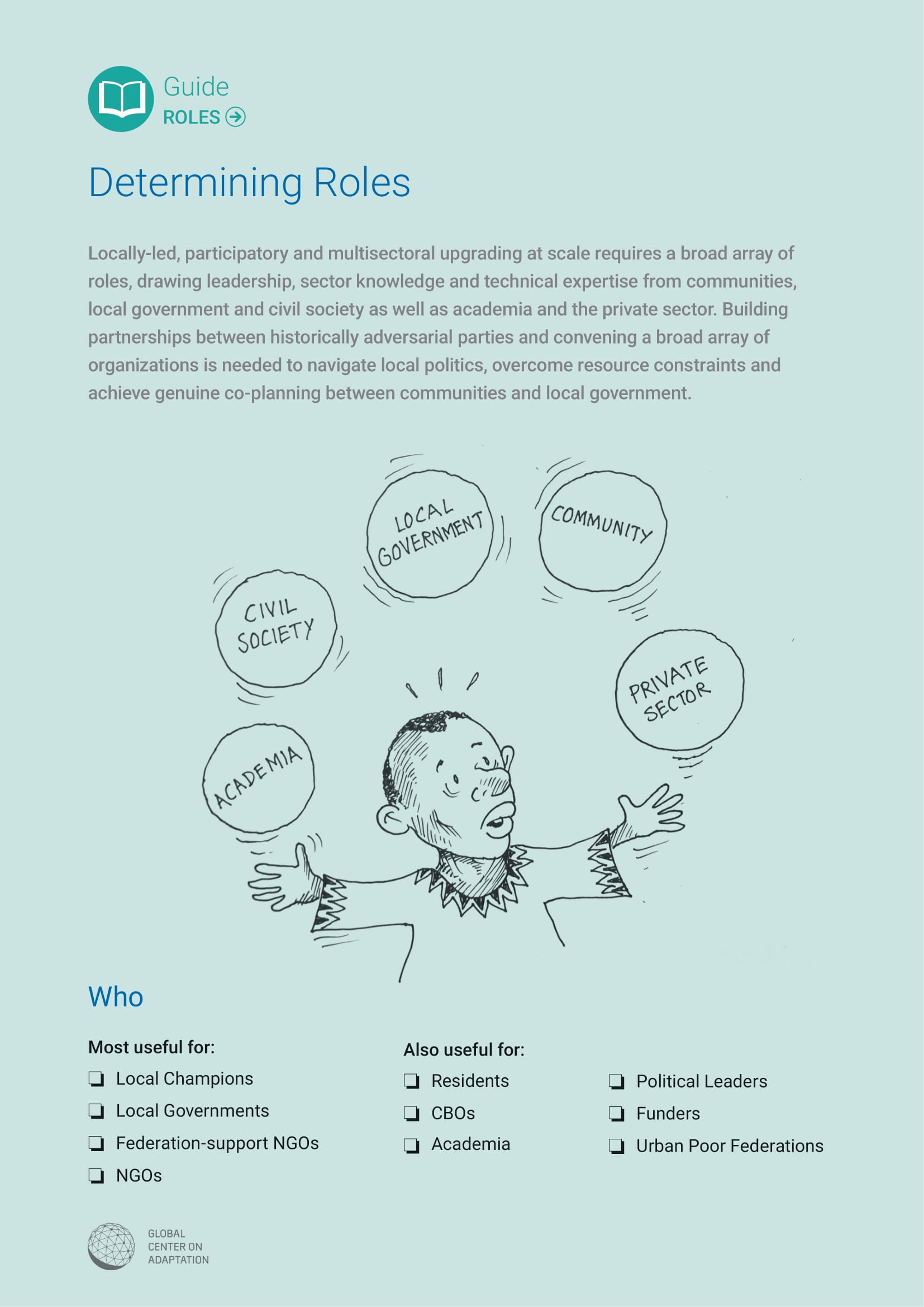
Negotiation and advocacy
Negotiation and advocacy

Measuring the Poverty Penalty
Measuring the Poverty Penalty
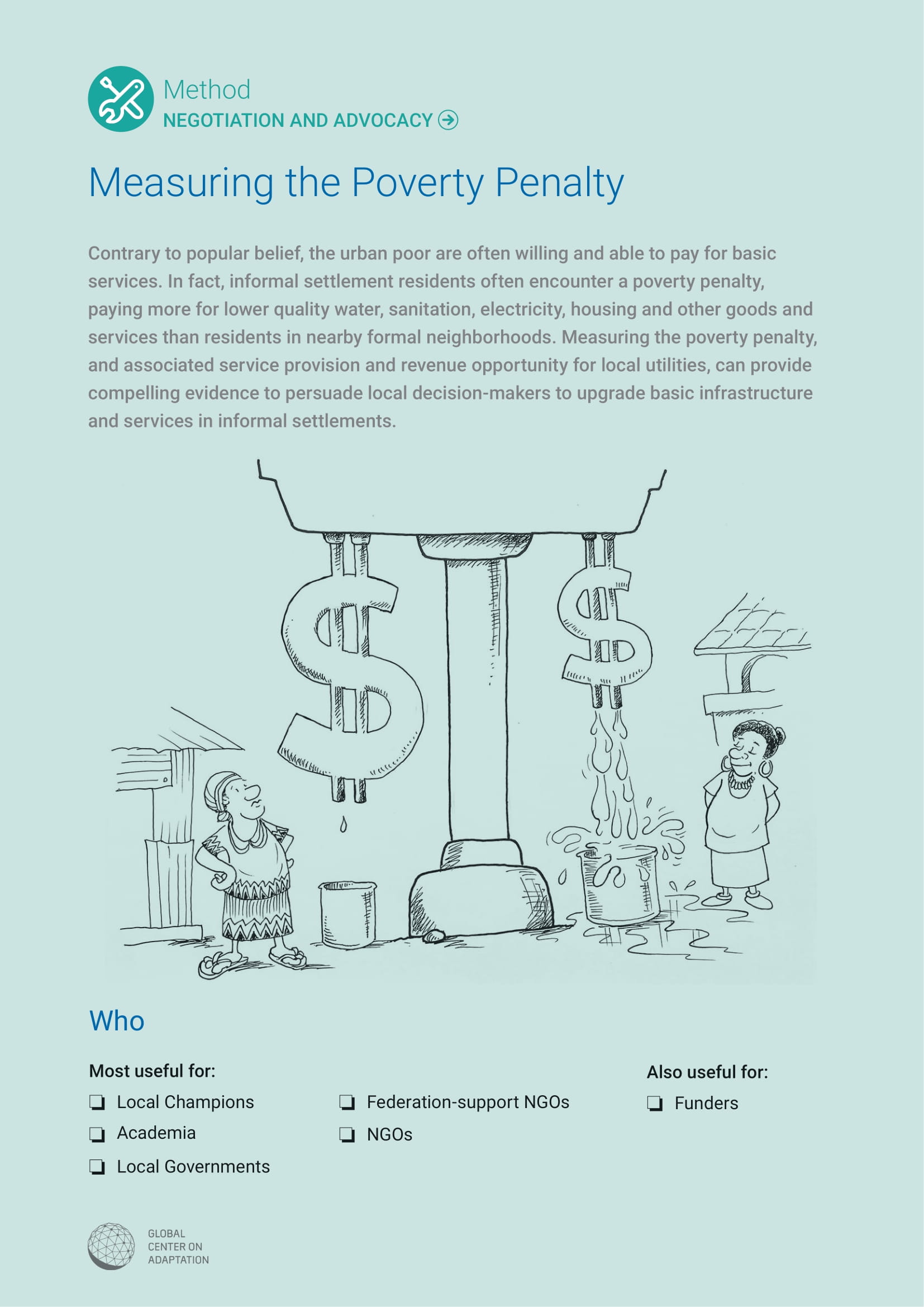
Community training
Community training

Recruiting and Training Community Mobilizers and Co-Researchers
Recruiting and Training Community Mobilizers and Co-Researchers
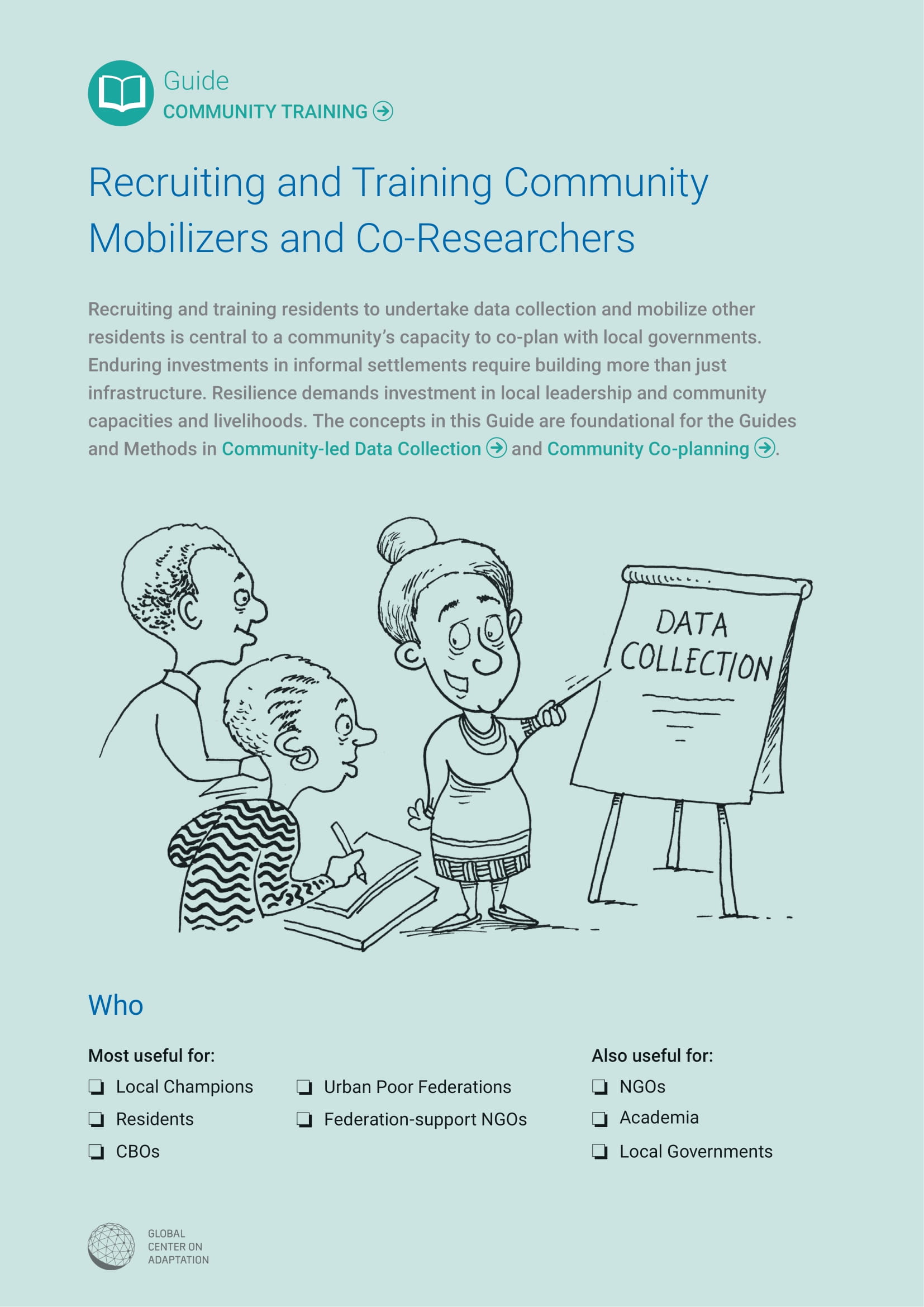
Community-led data collection
Community-led data collection

Settlement Mapping
Settlement Mapping
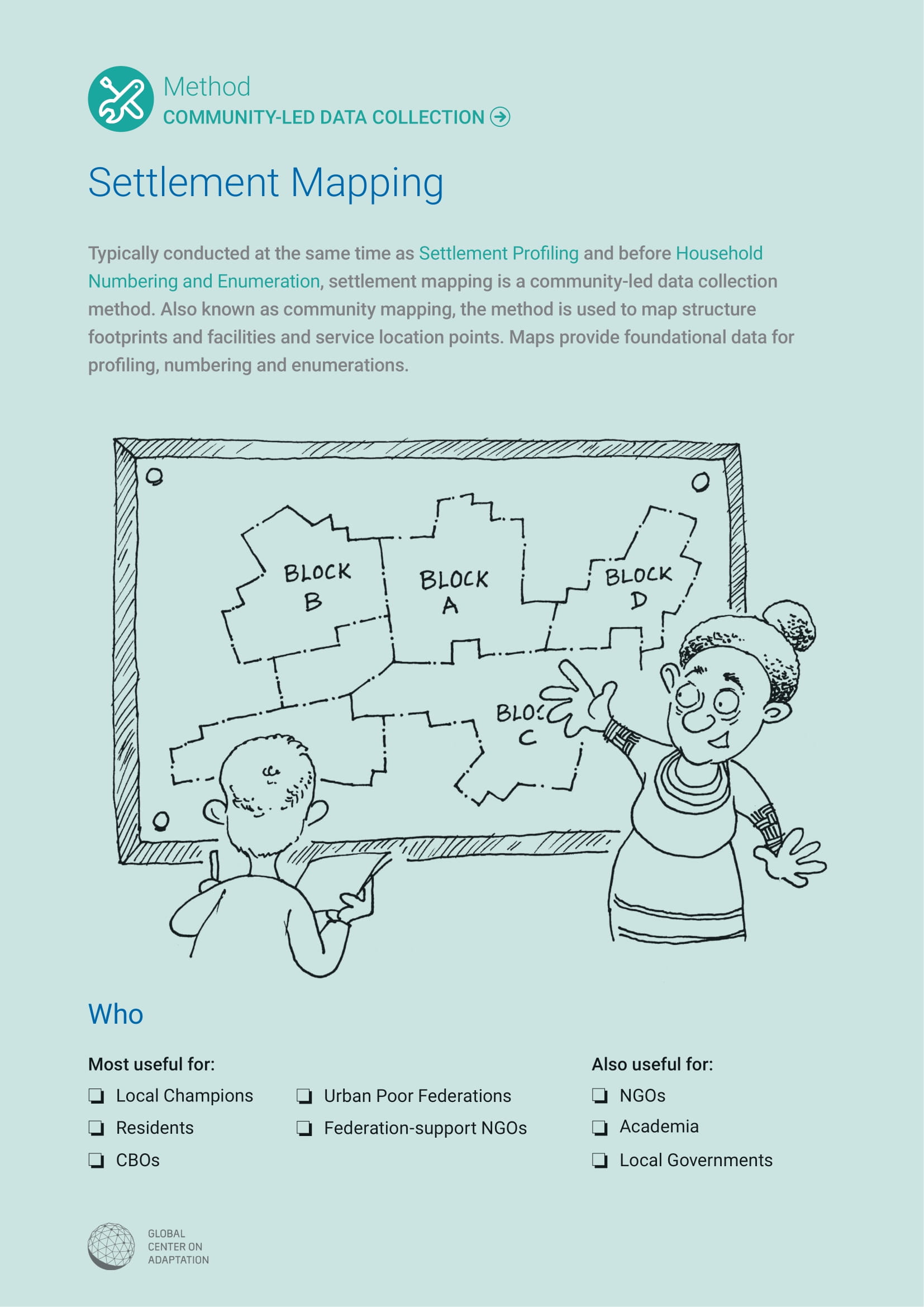

Settlement Profiling
Settlement Profiling


Household Numbering and Enumeration
Household Numbering and Enumeration
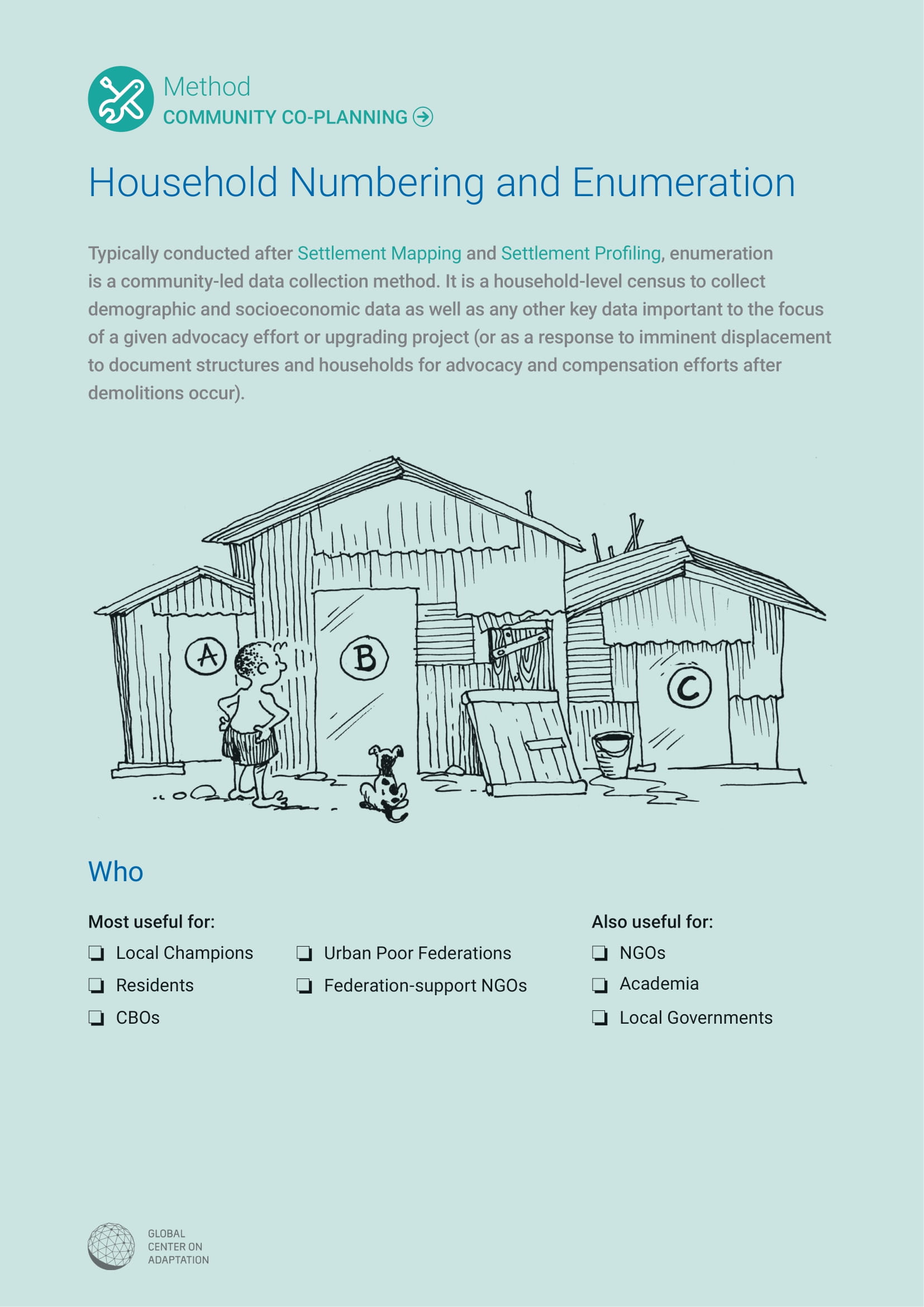

Risk Profiling: Identifying Risks, Assessing Solutions and Determining Community Priorities
Risk Profiling: Identifying Risks, Assessing Solutions and Determining Community Priorities
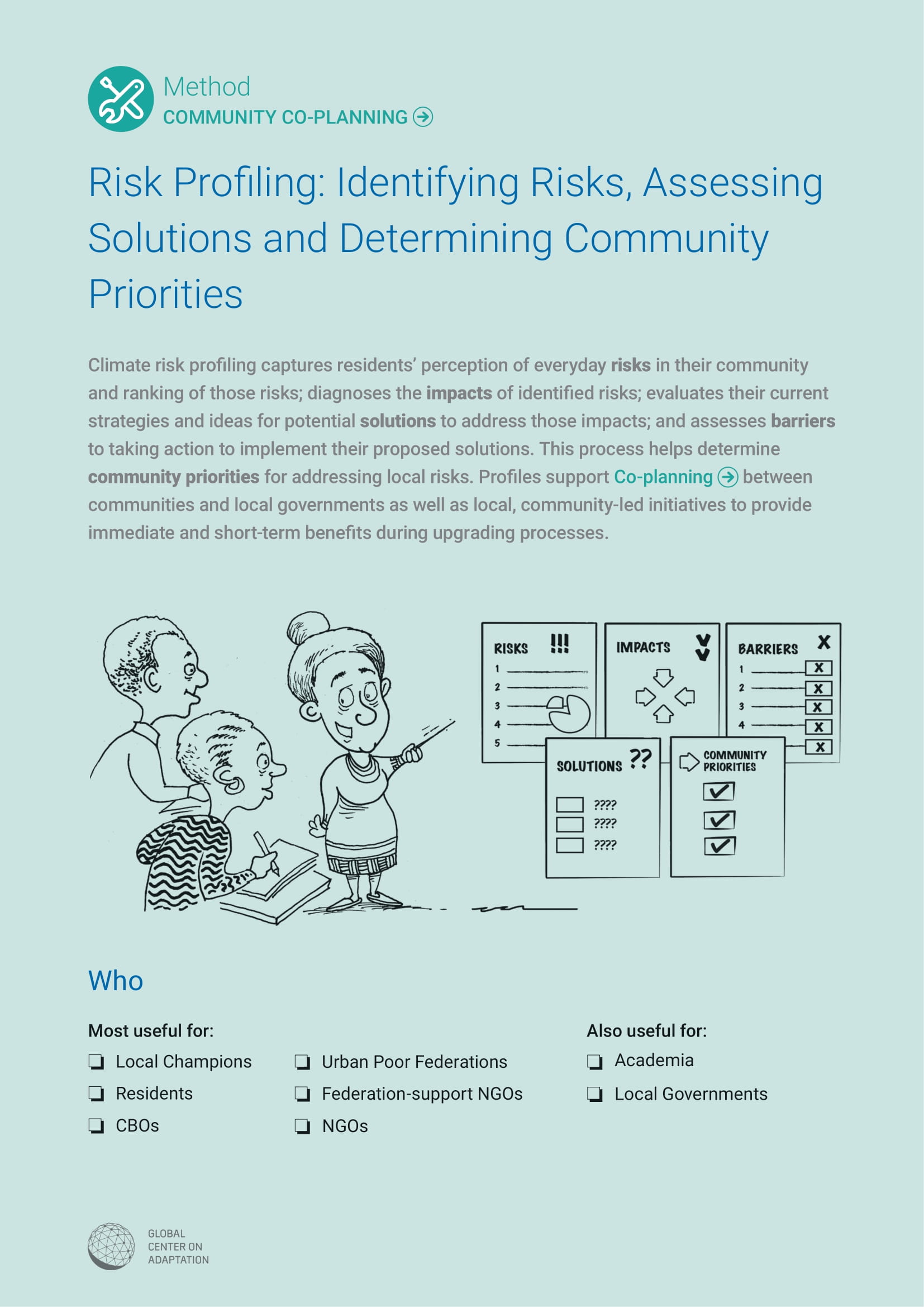
Community co-planning
Community co-planning

Let’s know each other, so we build each other: Lessons for community co-planning from the Mukuru approach
Let’s know each other, so we build each other: Lessons for community co-planning from the Mukuru approach
Mukuru residents worked with the local government to plan crucial infrastructure investments to improve their health, safety and dignity through a “co-planning” process. This empowered residents to make planning decisions that have improved their resilience to climate change.

Community Mobilization, Organization, Representation and Coordination Strategy
Community Mobilization, Organization, Representation and Coordination Strategy
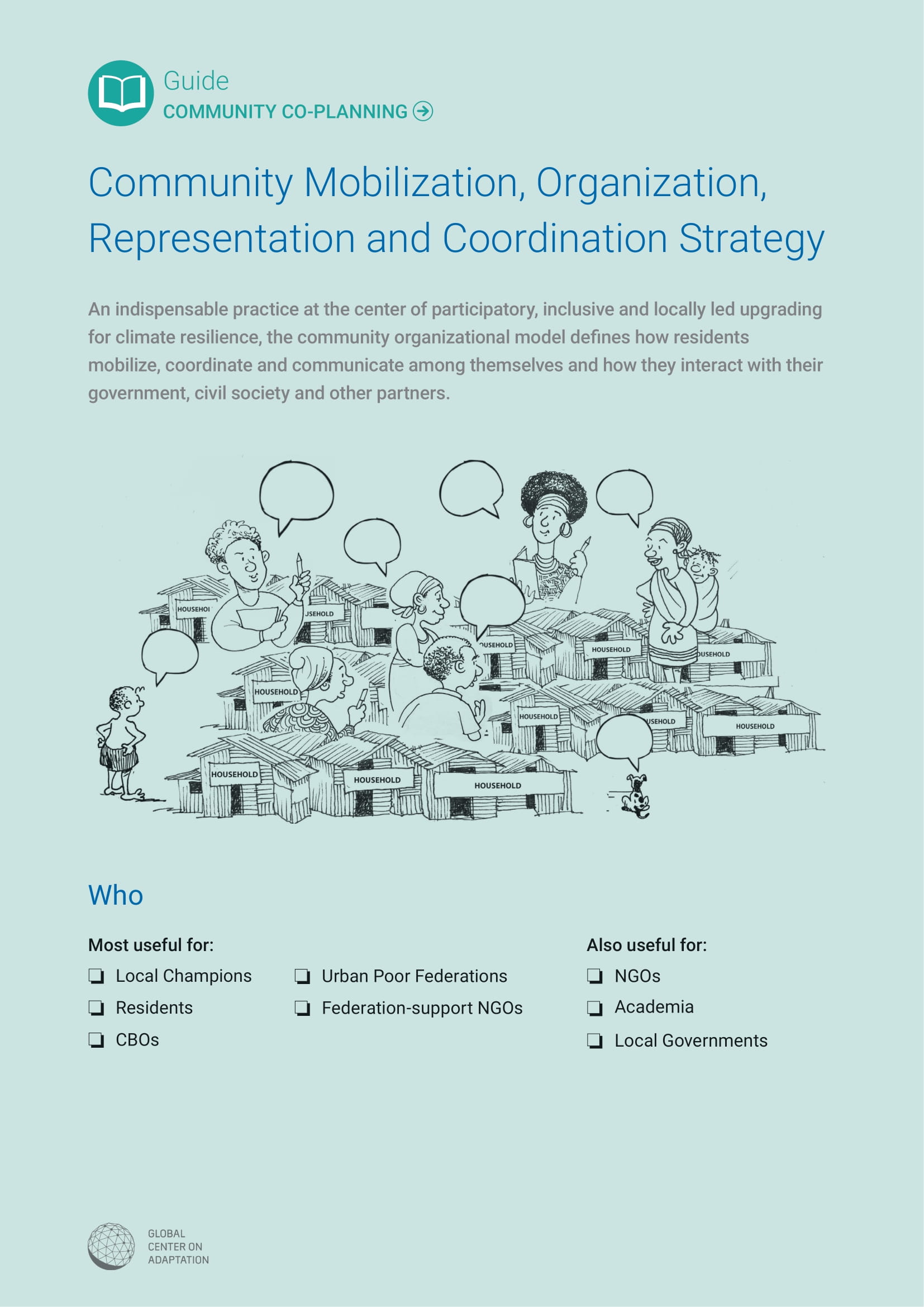
Integrated planning
Integrated planning

Forming interdisciplinary consortia
Forming interdisciplinary consortia
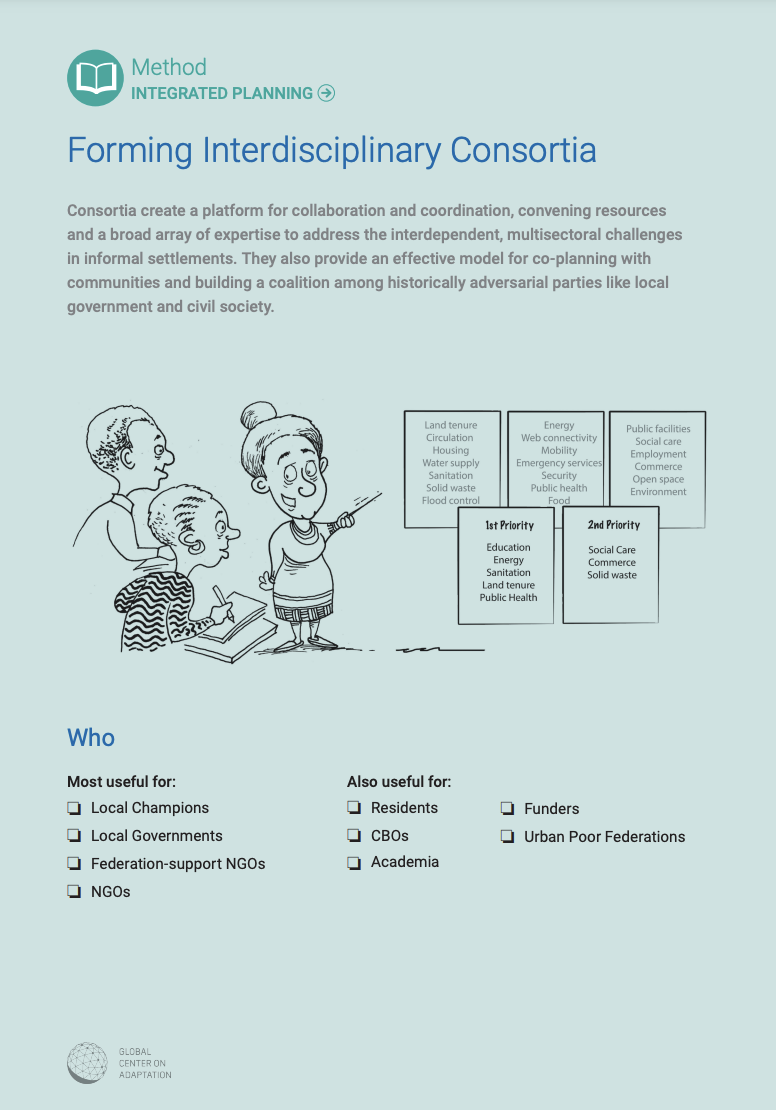

Forming consortia: Multisectoral planning in informal settlements
Forming consortia: Multisectoral planning in informal settlements
The interdependent, multisectoral challenges in informal settlements like Mukuru require integrated planning. Improvements in no one sector alone can solve them. It is crucial to develop sectoral plans in tandem, working together across disciplines.

Assessing Planning Standards and Negotiating Alternatives
Assessing Planning Standards and Negotiating Alternatives
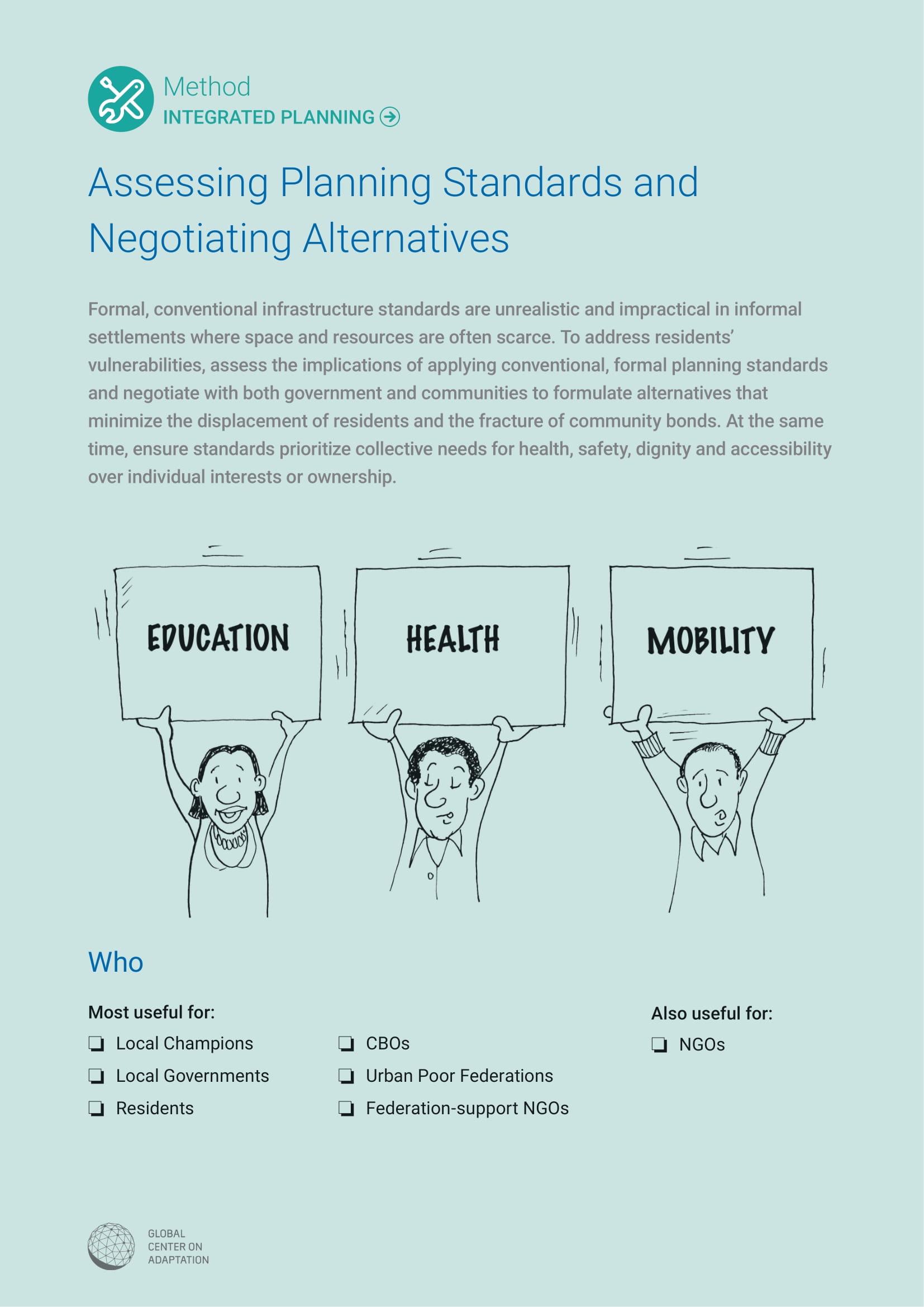

Throw out your rule book: Alternative planning approaches for climate resilience in informal settlements
Throw out your rule book: Alternative planning approaches for climate resilience in informal settlements
Acknowledging Mukuru’s unique developmental and political challenges, planning partners adopted an unconventional planning framework. Enabled by the SPA declaration, it adopted alternatives to conventional planning standards to minimize the displacement of Mukuru residents without sacrificing security, health or resilience considerations.

From plan to implementation: Opportunities and challenges
From plan to implementation: Opportunities and challenges
The Nairobi city government began implementing the community-led, multisectoral upgrading plan in 2020. While the Covid-19 pandemic has delayed official ratification of the upgrading plan, the Nairobi city government and Nairobi Metropolitan Services have already built roads, storm drains, several hospitals, a school, and a pilot water and sanitation project. Ongoing implementation efforts provide opportunities and pose several challenges.
